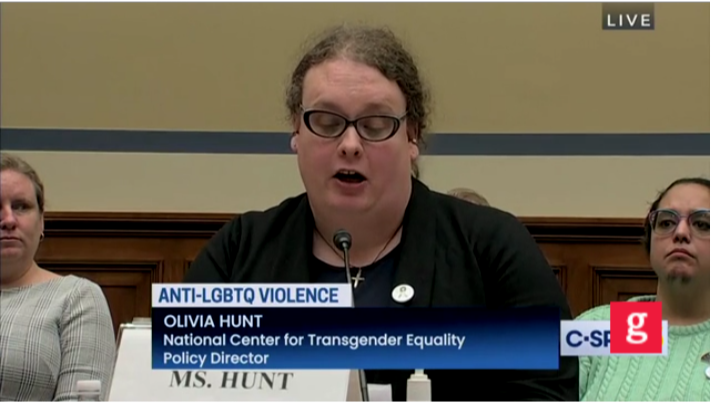‘Hate Starts with Speech’
Colorado survivors, others tell lawmakers about causes of anti-LGBTQ violence
Survivors of last month's deadly shooting at an LGBTQ night spot in Colorado and others told members of Congress about the root causes of anti-LGBTQ violence in the United States.
Those who survived the shooting at Club Q in Colorado Springs, Colo, and others testified Wednesday before a congressional committee.
Five people were killed and 17 others injured in the attack on the club in Colorado, and the alleged gunman has been charged with hate crimes-related counts.
“To the politicians and activists who accuse LGBTQ people of grooming children and being abusers, shame on you! As leaders of our country, it is your obligation to represent all of us, not just the ones who happen to agree with,” Club Q survivor Michael Anderson testified. “Hate speech turns into hate action, and actions based on hate almost took my life for me at 25 years old. I beg you all to consider your words before you speak them.”

Another survivor, James Slaugh, likewise urged an end to anti-LGBTQ rhetoric.
“Hate rhetoric from politicians, religious leaders, and media outlets is at the root of the attacks like at Club Q and it needs to stop now,” Slaugh said. “Rhetoric that makes people less than for being different, rhetoric that threatens to silence what sports we can play, what bathrooms we can use, how we define our family, and who I can marry.
“Every American -- every American, especially those elected to positions of power — has a responsibility and a choice to use their words consciously,” he added. “Hate starts with speech. The hateful rhetoric you've heard from elected leaders is the direct cause of the horrific shooting at Club Q. We need elected leaders to demonstrate language that reflects love and understanding, not hate and fear.”
Terms like “groomer,” are particularly dangerous, according to Olivia Hunt, policy director at the National Center for Transgender Equality.

“People who are already receptive to that message take it to heart, and it reinforces their prejudices. In their minds trans people either become victims to be saved from ourselves or villains to be punished,” Hunt said. “One example of this inaction is the misuse of the term groomer. Anti-LGBTQ activists have appropriated this terminology used by survivors of childhood sexual abuse and used it to slander LGBTQ people and our allies as predatory, harmful toward children.
“In reality, trans people are significantly more likely to be the victims of sexual abuse than perpetrators of it,” Hunt added. “And now this misused terminology has become part of the political discourse around trans people, and is invoked as a reason to further restrict our rights in the name of protecting children.”
Some 24 different hospitals and providers across 22 states were directly attacked online, following harassing, inflammatory, and misleading posts, according to Kelley Robinson, president of the Human Rights Campaign, an LGBTQ rights organization, citing a recent report.
“I think the thing to really note here is that there's a direct connection. Hateful speech, extremist rhetoric is connected to real life violence. We're seeing it play out time and time again, and we have to interrupt the cycle,” Robinson said.
Rep Katie Porter (D-Calif) agreed that terms like “groomer” can be so problematic.
“You know, this allegation of groomer and pedophile, it is alleging that a person is criminal somehow and engaged in criminal acts merely because of — of their identity, their sexual orientation, their gender identity,” she said.
Please consider supporting our work …
Also, please subscribe…



